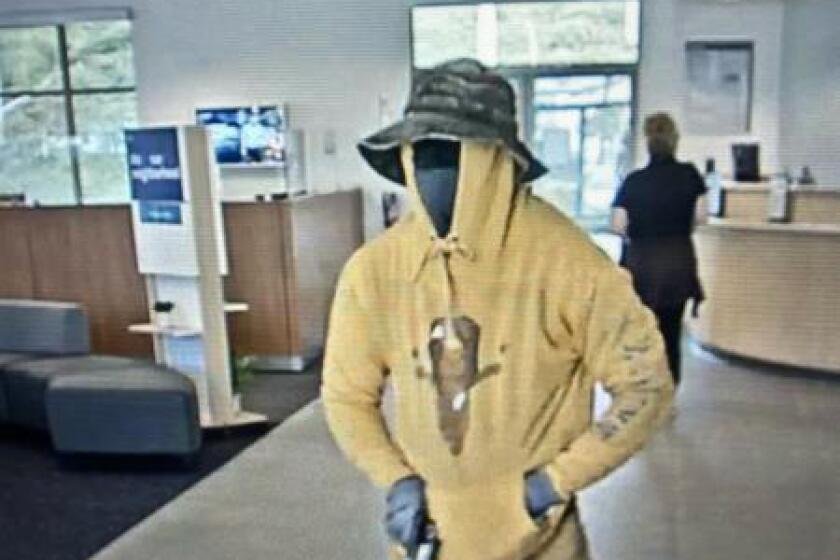Rejected Legal Assault on Sex Films Appealed
The district attorney’s office is trying to revive a novel legal assault on pornography--rejected by the California Supreme Court in a case involving Hollywood sex film maker Harold Freeman--by appealing the case to the U.S. Supreme Court.
Assistant Dist. Atty. Curt Livesay confirmed Friday that the high court has been asked to review the California Supreme Court’s reversal of Freeman’s conviction in 1985 on five counts of pandering or the procurement of individuals for the purpose of prostitution.
The California justices held in late August that the state’s anti-pandering law cannot be used to prosecute producers of sexually explicit movies that have not been found to be legally obscene. Such uses of the law, which was originally designed for use against pimps, violate the constitutional right of free expression, the court said.
Fined $10,000
Freeman, the president of Hollywood Video Production Co., was convicted of hiring actresses for up to $800 a day to perform explicit sex acts in a movie called, “Caught From Behind II.” He was fined $10,000, sentenced to jail for 90 days and placed on probation.
No attempt was made to prosecute Freeman, who has produced more than 100 full-length sex movies, on obscenity charges.
Justice Marcus M. Kaufman, writing for the state court, viewed the attempted use of the anti-pandering statute against Freeman as a “somewhat transparent attempt” at an “end run” around the First Amendment and obscenity laws.
The court held that a necessary element to prove prostitution--”sexual arousal or gratification”--was absent in the case because performers had been paid for acting and the acts had involved consenting adults in a movie studio, not in public.
‘Wasn’t an Essential Element’
“We argued that sexual gratification wasn’t an essential element, and in any event, people watching the movie received sexual gratification. That’s why this enterprise is so lucrative. We lost,” Livesay said.
“We’re asking the U.S. Supreme Court to clarify that issue. Whether it is a violation of California law to pay people to engage in sex on camera or off regardless of who is gratified by the conduct.”
More to Read
Sign up for Essential California
The most important California stories and recommendations in your inbox every morning.
You may occasionally receive promotional content from the Los Angeles Times.










